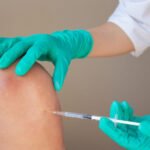
Managing ADHD with Comprehensive Care in Chicago
Have you ever experienced a brain whirlwind? Sometimes, it becomes difficult to concentrate, moving from one idea to another or feeling fidgety due to a lack of composure. Many people affected require assistance in organizing their schedules and completing tasks on time. If this sounds familiar, you may have Attention Deficit Hyperactivity Disorder (ADHD).
ADHD is a neurodevelopmental disorder that is known to occur in children and adults, and it presents its symptoms in the following ways: hyperactivity, inattention, and impulsiveness. It is more common than many realize and can significantly affect your daily routine, work, and interpersonal relationships.
Understanding and managing ADHD is crucial for improving the quality of life for those affected. This blog provides comprehensive information on ADHD treatment in Chicago.
Symptoms and Diagnosis of ADHD
Although the signs of Attention Deficit Hyperactivity Disorder can vary among individuals, they generally fall into three broad categories: inattention, hyperactivity, and impulsivity.
- Inattention: Difficulty focusing on activities, often leading to confusion and errors. They may also have difficulty organizing tasks and are easily distracted, which impacts their daily lives and tasks.
- Hyperactivity: Fidgeting, inability to sit still, excessive talking, and abnormal running or climbing in children.
- Impulsivity: Acting without thinking, interrupting others frequently, impatience, and making snap decisions without considering the consequences.
Diagnosing Attention Deficit Hyperactivity Disorder requires a comprehensive examination by a healthcare provider, involving inquiries and observations. The physician evaluates the person’s behavior against norms for their age group and may screen for other conditions with similar symptoms.
Comprehensive ADHD Treatment Plans
Dealing with ADHD requires a comprehensive approach tailored to individual needs and could include:
- Education and Training: Educating the individual, parents, and teachers about ADHD is crucial before beginning any treatment, including medication.
- Behavioral Therapy: This therapy helps individuals modify their behavior. It can involve managing organization and attention and curbing impulsive behaviors.
- Medication: ADHD has several medications that can be prescribed to control the symptoms, helping to improve concentration and lower impulsivity and hyperactivity.
- Support Services: These may include counseling, knowledge provision, and other services concerning ADHD for the client and their family members.
- Regular Monitoring: Treatment plans should be updated regularly to ensure continued effectiveness.
Behavioral Therapy and Medication Management
In Chicago, behavioral therapy and medication management are popular ADHD treatment options
- Behavioral Therapy: This approach helps individuals develop new strategies that may manage their actions. In the case of children, this may involve interventions to help them stay focused while at school, follow regulations and policies, and manage time effectively.
- Medication Management: Pharmacological treatments can decrease symptoms and increase functioning. Different medications, including stimulants and non-stimulants, are available. The doctor will discuss options with the patient to find the most suitable medication and dosage.
Treatment is most effective when combining medication and behavioral therapy. Counseling may also be valuable for dealing with specific behaviors and actions, while medication could help improve concentration and regulate the body system.
Services for Supporting Families
Life with ADHD presents challenges for both the individual and their loved ones. Support services can be very helpful in offering the required tools for managing ADHD.
- Support Groups: These groups, including doctors, nurses, parents, and friends, offer emotional support and shared experiences.
Educational Resources: Resources such as books, websites, and programs offer valuable knowledge on handling. - Counseling and Therapy: Family counseling may improve communication and relationships, helping parents and siblings comprehend and adapt to the difficulties brought by Attention Deficit Hyperactivity Disorder.
- Support in School: Students with ADHD need support in the school environment. This may involve collaborating with teachers to develop an individualized education program (IEP) or a 504 plan that sets out explicit accommodations and strategies to assist the child in succeeding in school.
- Community Resources: Numerous communities provide resources for families coping with ADHD. These may incorporate local peer support groups, recreational programs, and other services.
Conclusion
ADHD is a persistent medical problem that must be holistically managed by examining its symptoms and determining an approach to treatment. Behavioral therapy, medicine, and support services form an effective treatment plan. An ADHD diagnosis does not prevent a successful and happy life, especially with appropriate support and resources.
If you or your loved ones have Attention Deficit Hyperactivity Disorder, seek help from a specialist. Chicago offers many resources for managing ADHD effectively.
About Healwell
Healwell Primary Care is committed to providing comprehensive ADHD care in Chicago. Our team of experts devise individualized programs, provide support, and share resources to help you manage ADHD symptoms effectively. With Healwell’s help, you can lead a successful and fulfilling life. Ready to take the first step? Contact us today or book your appointment online now.
FAQs:
Q. What are the major indications of Attention Deficit Hyperactivity Disorder?
ANS: ADHD involves a lack of concentration, impulsive behavior, and hyperactivity. People with this condition can fail to focus, be active, or act without thinking.
Q. How is ADHD detected?
ANS: The detection of Attention Deficit Hyperactivity Disorder often involves a comprehensive assessment by a medical expert. This may consist of interviews, questionnaires, and behavior observation.
Q. Which treatments for ADHD are currently available?
ANS: Treatments for ADHD may consist of pharmacotherapy, behavioral therapy, education and training services, support programs, and regular monitoring. A comprehensive treatment plan often incorporates all these methods.
Contact Us Today
Book an in-person or online visit in seconds. Call (312) 971-7147 or click on Book Appointment.





